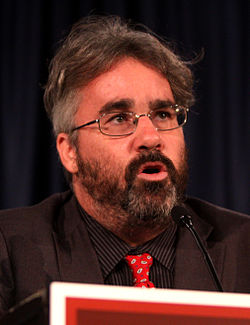 Cover of the first edition | |
| Author | Brian Doherty |
|---|---|
| Subject | Libertarianism |
| Publisher | PublicAffairs |
Publication date | 2007 |
| Publication place | United States |
| Media type | Print (hardback and paperback) |
| Pages | 741 |
| ISBN | 978-1-58648-350-0 |
| OCLC | 433347326 |

Radicals for Capitalism: A Freewheeling History of the Modern American Libertarian Movement is a 2007 book about the history of 20th-century American libertarianism by journalist and Reason senior editor Brian Doherty. [1] He traces the evolution of the movement, as well as the life stories of Ayn Rand, Milton Friedman, Ludwig von Mises, F. A. Hayek, and Murray Rothbard, and details how they intertwined.
Contents
Doherty does not proceed strictly in chronological order, preferring instead to break up the action into short stories on central themes. [2]